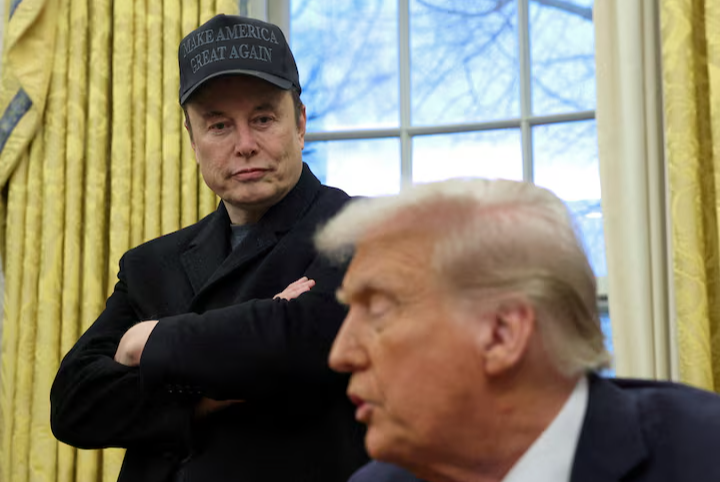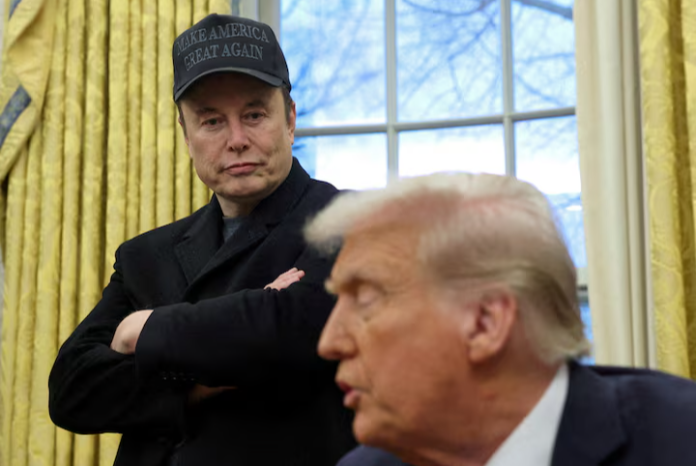In a surprising move, President Donald Trump announced on Wednesday that he has appointed billionaire entrepreneur Elon Musk to head the Department of Government Efficiency (DOGE). This declaration appears to contradict recent statements from the White House regarding Musk’s official role.
Earlier this week, the White House, in a court filing, described Musk as a White House employee and senior adviser to the President, emphasizing that he held no authoritative position within DOGE. This clarification was made during legal proceedings initiated by Democratic attorneys general challenging Musk’s involvement with the department.
However, during an address to investors and business leaders in Miami, President Trump stated, “I signed an order creating the Department of Government Efficiency and put a man named Elon Musk in charge.” This statement directly challenges the White House’s prior assertions about Musk’s role.
The Department of Government Efficiency, established by an executive order on President Trump’s first day of his second term, is tasked with identifying and eliminating wasteful federal spending. Despite its significant mandate, DOGE is not recognized as a cabinet-level department, and the identity of its official administrator remains undisclosed, with White House officials declining to provide clarity.
Under Musk’s informal leadership, DOGE has aggressively pursued cost-cutting measures across various federal agencies. These efforts have resulted in substantial job reductions and the defunding of critical departments, including Energy, Veterans Affairs, Education, the Food and Drug Administration (FDA), the Centers for Disease Control and Prevention (CDC), the National Institutes of Health (NIH), and the United States Agency for International Development (USAID).
Critics argue that these cuts have severely impacted essential services such as nuclear security, veterans’ healthcare, educational research, food and medical device safety, epidemic prevention, and foreign aid.
Musk, the CEO of Tesla and SpaceX, has faced numerous allegations of conflicts of interest, given his extensive business ventures and his role in overseeing federal cost-reduction initiatives. The White House has addressed these concerns by stating that Musk will recuse himself from any situations where a conflict of interest may arise.

In a recent interview, President Trump praised Musk’s efforts, suggesting that the cost-cutting initiatives led by DOGE could be the most significant achievement of Musk’s career, potentially surpassing his accomplishments with Tesla and SpaceX. Trump expressed optimism that, through Musk’s leadership and additional revenue from tariffs, the U.S. could achieve a balanced budget in the near future.
Despite the administration’s confidence, opposition to DOGE’s methods is mounting. A coalition of fourteen states, led by New Mexico, has filed a lawsuit challenging what they describe as the “unlawful delegation of executive power to Elon Musk.” The lawsuit contends that Musk’s actions have led to widespread disruption and have undermined the stability of federal agencies.
The ambiguity surrounding Musk’s official capacity within DOGE has also sparked legal debates. Democratic state attorneys general argue that Musk’s influential advisory role necessitates Senate confirmation, a process that has not occurred. Judge Tanya Chutkan is currently reviewing an emergency request to limit Musk’s influence pending further legal examination.
As the situation develops, the administration faces increasing pressure to clarify Musk’s position and address the growing concerns regarding the impact of DOGE’s cost-cutting measures on essential government services.



